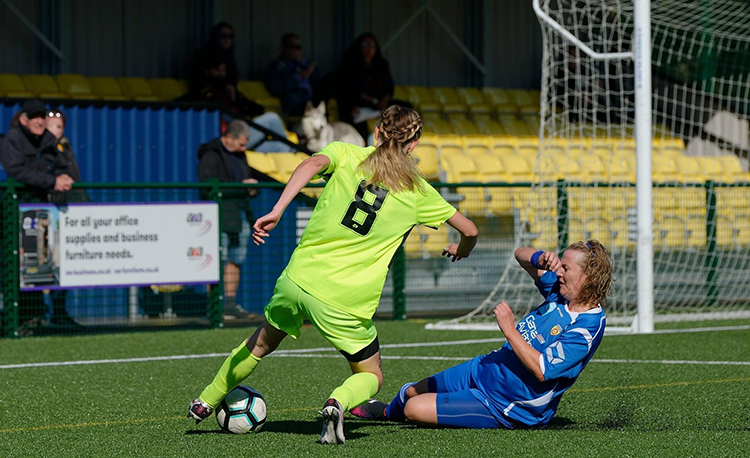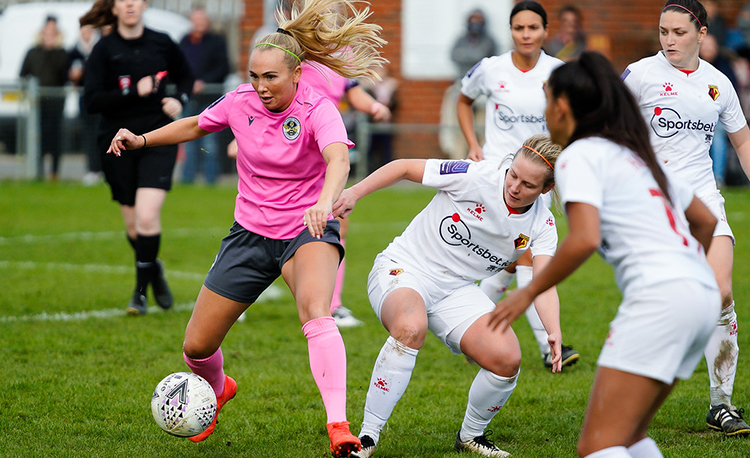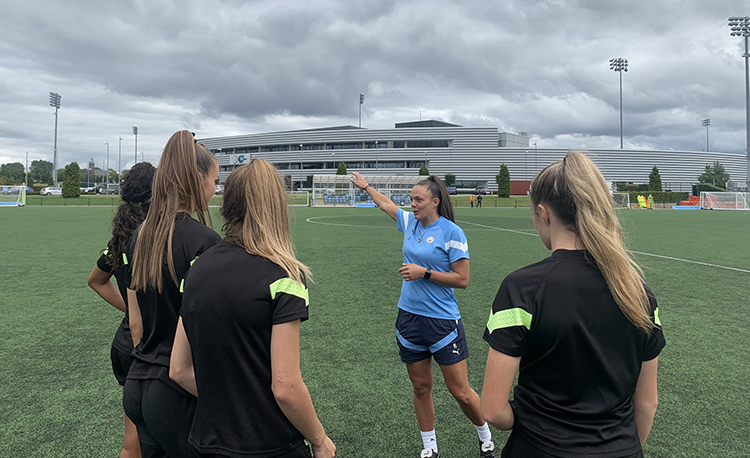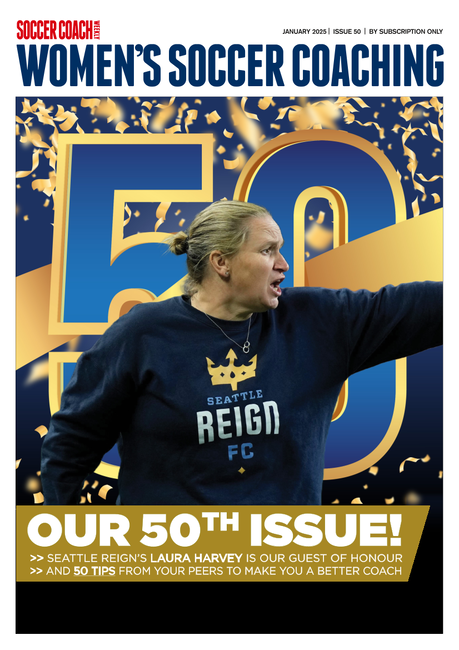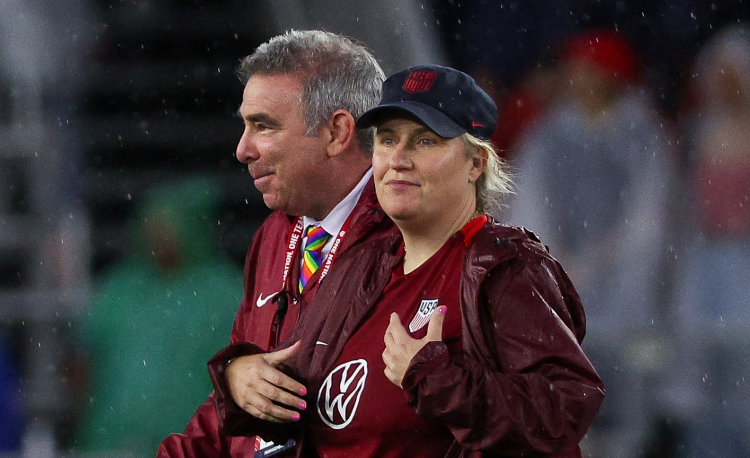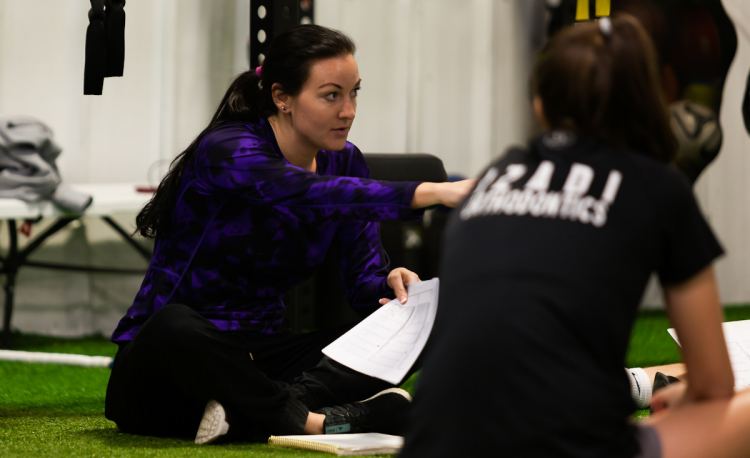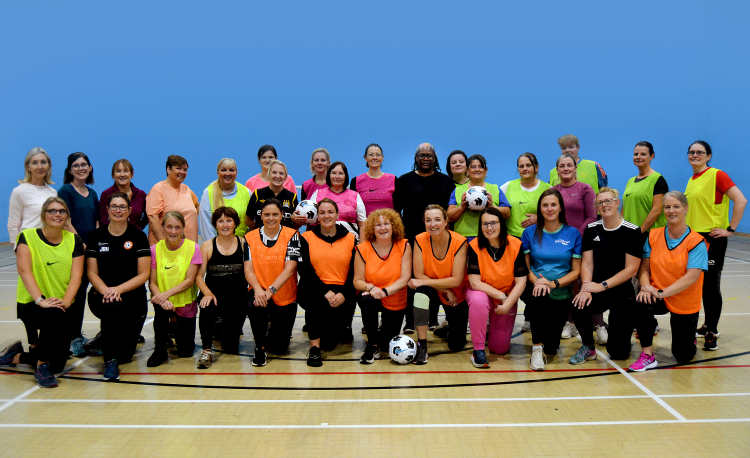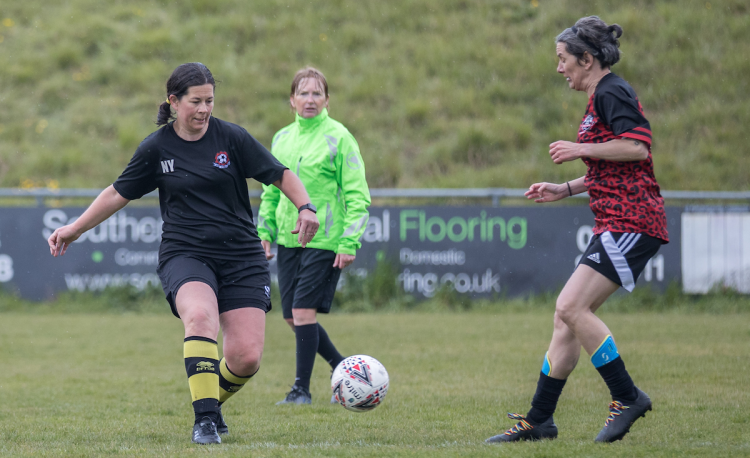You are viewing
1 of your 3 free articles
Endometriosis: a player's experience
Player, coach and teacher Beth Lowe gives her insight into dealing with the condition and has advice for coaches if any of their squad are struggling with it
It is hard to explain endometriosis to people who do not have it - there is no comparison that does it justice.
Many will say it’s ‘just bad period pains’, but it is more complicated and more painful than that.
It is estimated that one in 10 women have endometriosis, so in a soccer team it seems likely that someone will have it.
The big issue is that, in the UK, it takes, on average, eight years to be diagnosed. This means there are likely to be thousands who have the condition, but without a diagnosis.
Endometriosis affects everyone differently. For me, it causes fatigue, extreme stomach and back pain, heavy periods and nausea. Some of these symptoms, such as the pain and fatigue, are constant, whereas some only appear when I get flare-ups.
A flare-up is a period of temporary intense pain, which is more severe than your usual chronic pain. These symptoms can hinder performance when you are trying to play a competitive, physical sport like football.
After a game, particularly against more physical teams, my pain gets significantly worse. Anti-inflammatory medication is needed to try to manage the pain. I also often find driving after matches difficult, so I try to get lifts from my teammates.
During my first season with my current club, I had multiple endometriosis flare-ups.
Once, I was driving to training and had to pull over as my pain was so intense that I couldn’t see properly. I ended up in hospital for the next couple of days.
During training, I would regularly have to take breaks and I only made it through 90 minutes a handful of times. It was very hard mentally as I was striving to be successful, but it felt like my body was against me.
Although there is no cure for endometriosis, there are a few things that I do to try and manage my symptoms, particularly on training and matchdays.
I try to avoid eating certain things, such as processed foods and gluten, as they can be inflammatory. Instead, I try to focus on having oats, brown rice and plenty of fruit and vegetables, as these seem to give me the energy I need without side effects.
During a flare-up, I will communicate with my coaches and reduce my training, particularly any exercises that involve sprinting or jumping.
"I often find driving after matches difficult so I try to get lifts from teammates..."
Adding heat to my back and stomach can really minimise pain, so I make sure I have stick-on heat packs in my kit bag.
There is still a lot of stigma and misinformation around endometriosis. It is important that coaches are educated on how it can affect players’ performance at different times of the month.
If someone in your team tells you they have this condition, or mentions they are suffering with bad period pains, ask them how they would like to be supported and what adjustments they might need.
If they ask to take a break from a training exercise, be empathetic and check how they are feeling. Having conversations about periods and endometriosis is not always comfortable, but it is so important to create an inclusive team.
Last season was the best I have had as a player - I won the supporters’ and manager’s player of the season awards.
Having a chronic condition like endometriosis should not prevent you from being successful and performing well. But it is only possible when there is an understanding of the condition and support from coaches and teammates.
Related Files
Newsletter Sign Up
Newsletter Sign Up
Discover the simple way to become a more effective, more successful soccer coach
In a recent survey 89% of subscribers said Women's Soccer Coaching makes them more confident, 91% said Women's Soccer Coaching makes them a more effective coach and 93% said Women's Soccer Coaching makes them more inspired.
*includes 3 coaching manuals
Get Inspired
All the latest techniques and approaches
Women's Soccer Coaching offers proven and easy to use soccer drills, coaching sessions, practice plans, small-sided games, warm-ups, training tips and advice.
We've been at the cutting edge of soccer coaching since we launched Soccer Coach Weekly in 2007, creating resources for the grassroots youth coach, following best practice from around the world and insights from the professional game.
